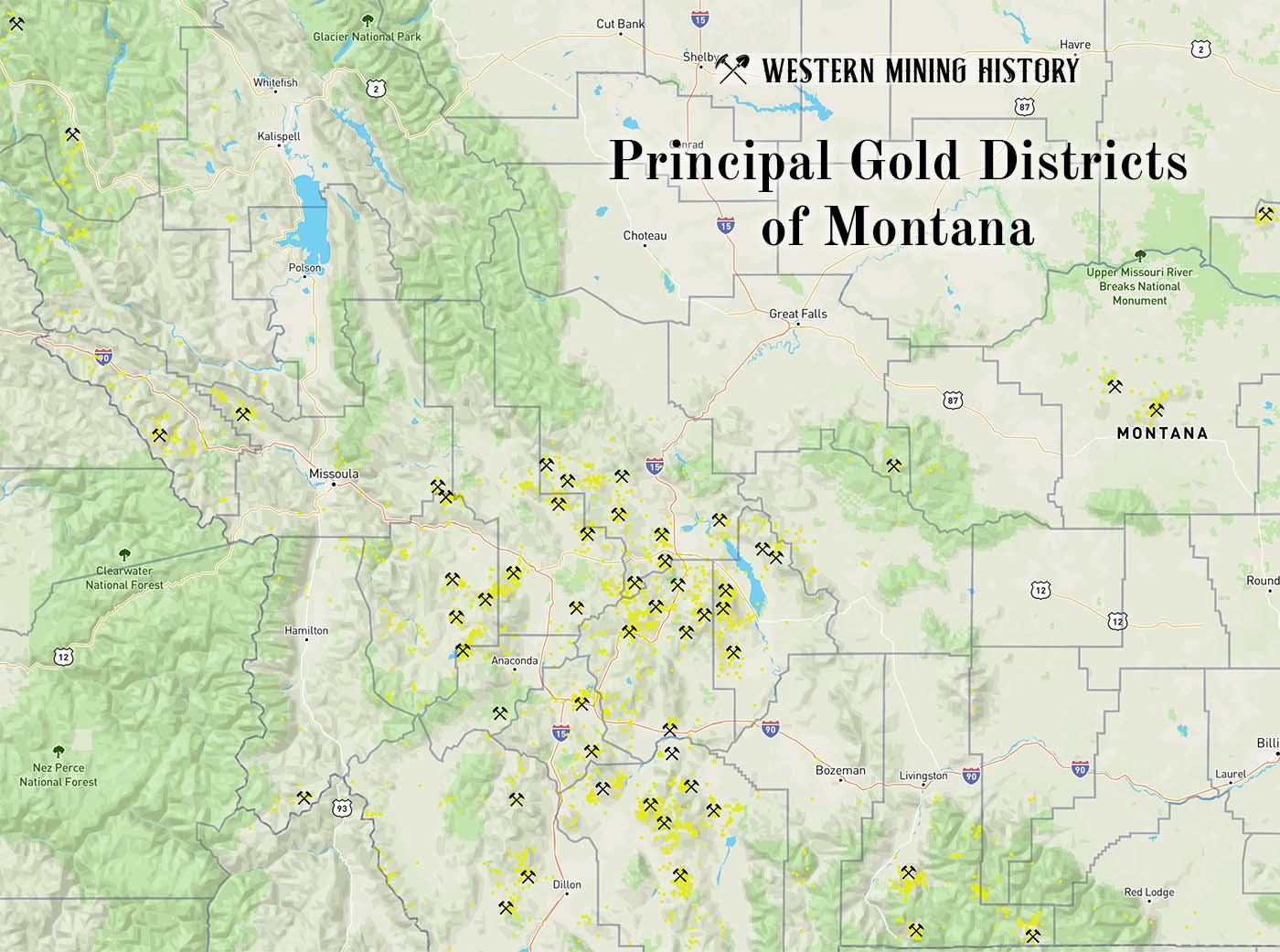The Gold Bug Mine is a gold mine located in Phillips county, Montana at an elevation of 4,600 feet.
About the MRDS Data:
All mine locations were obtained from the USGS Mineral Resources Data System. The locations and other information in this database have not been verified for accuracy. It should be assumed that all mines are on private property.
Mine Info
Elevation: 4,600 Feet (1,402 Meters)
Commodity: Gold
Lat, Long: 47.91028, -108.61667
Map: View on Google Maps
Gold Bug Mine MRDS details
Site Name
Primary: Gold Bug Mine
Commodity
Primary: Gold
Secondary: Silver
Tertiary: Iron
Tertiary: Manganese
Tertiary: Fluorine-Fluorite
Location
State: Montana
County: Phillips
District: Little Rocky Mountains
Land Status
Land ownership: Private
Note: the land ownership field only identifies whether the area the mine is in is generally on public lands like Forest Service or BLM land, or if it is in an area that is generally private property. It does not definitively identify property status, nor does it indicate claim status or whether an area is open to prospecting. Always respect private property.
Holdings
Not available
Workings
Type: Underground
Ownership
Not available
Production
Not available
Deposit
Record Type: Site
Operation Category: Past Producer
Operation Type: Unknown
Discovery Method: Unknown
Years of Production:
Organization:
Significant: N
Deposit Size: S
Physiography
General Physiographic Area: Interior Plains
Physiographic Province: Great Plains Province
Physiographic Section: Missouri Plateau, Unglaciated
Physiographic Detail: Little Rocky Mountains
Mineral Deposit Model
Not available
Orebody
Form: TABULAR
Structure
Type: L
Description: Upwarping Of Sediments, Intrusion By Porphyry
Alterations
Alteration Type: L
Alteration Text: Alteration Products, Sericite, Kaolinite, Silica
Rocks
Name: Clastic Sedimentary Rock
Role: Host
Age Type: Host Rock
Age Young: Late Permian
Name: Clastic Sedimentary Rock
Role: Host
Age Type: Associated Rock
Age Young: Late Cretaceous
Analytical Data
Not available
Materials
Ore: Gold
Ore: Limonite
Ore: Sylvanite
Comments
Comment (Production): NO PRODUCTION FIGURES COULD BE FOUND IN ANY OF THE REFERENCES CITED, ALTHOUGH IT WAS STATED THAT THIS MINED PRODUCE LESS THAN THE AUGUST MINE WHICH IS REPORTED TO HAVE PRODUCED 90,000 TONS OF GOLD ORE.
Comment (Workings): LENGTH AND DEPTH OF WORKINGS ARE APPROXIMATE DUE TO SPARSE INFORMATION
Comment (Geology): THE PORPHYRY IS SAID TO RANGE FROM SYENITE TO TINGUAITE IN COMPOSITION
Comment (Location): ALTITUDE APPROXIMATE
References
Reference (Deposit): WEED, W. H. 1896, ORE DEPOSITS OF THE LITTLE ROCKY MOUNTAINS, MONTANA, THE ENGINEERING AND MINING JOURNAL, VOL 61, P. 423-424
Reference (Deposit): WEED, W. H. AND PIRSSON, L. V., 1896, GEOLOGY OF THE LITTLE ROCKY MOUNTAINS, JOURNAL OF GEOLOGY, VOL 4, P. 399-428
Reference (Deposit): BOYNTON, C. H., 1906, THE LITTLE ROCKIES MINING DISTRICT, MONTANA, THE ENGINEERING AND MINING JOURNAL, VOL 81, P. 181.
Principal Gold Districts of Montana

In Montana, 54 mining districts have each have produced more than 10,000 ounces of gold. The largest producers are Butte, Helena, Marysville, and Virginia City, each having produced more than one million ounces. Twenty seven other districts are each credited with between 100,000 and one million ounces of gold production. Read more: Principal Gold Districts of Montana.